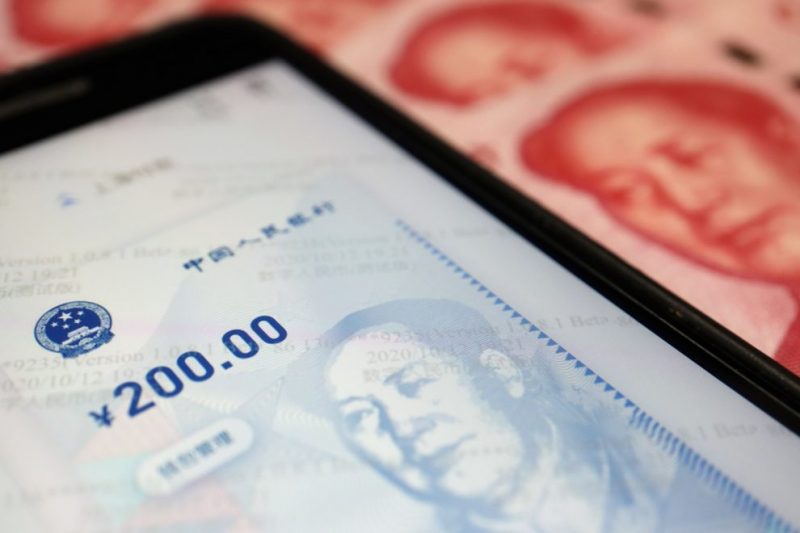Western nations have announced a harsh set of sanctions to punish Russia for its invasion of Ukraine, which includes blocking some banks from the SWIFT international payments system.
Chinese payment-related stocks jumped on Monday as investors wagered that kicking banks out of the SWIFT system would benefit China’s own cross-border payment system, CIPS, and accelerate the development of the country’s digital currency, the e-CNY or digital yuan.
Founded in 1973, Belgium-based SWIFT is used by banks globally for cross-border financial transactions.
Several Russian banks are connected to China’s Cross-Border Interbank Payment System (CIPS), with one of them as a direct participant, analysts at China Securities Co (CSC) wrote in a research note published Sunday.
Here’s a quick look at CIPS:
WHAT IS CIPS?
Backed by the People’s Bank of China (PBOC), China launched the CIPS clearing and settlement services system in 2015 to internationalise yuan use. It allows global banks to clear cross-border yuan transactions directly onshore, instead of through clearing banks in offshore yuan hubs.
WHO USES CIPS?
CIPS processed around 80 trillion yuan ($12.68 trillion) in 2021, a 75% increase from a year ago, according to state-backed newspaper Jiefang Daily. As of end-January, CIPS said about 1,280 financial institutions in 103 countries and regions have connected to the system.
They include 30 banks in Japan, 23 banks in Russia and 31 banks from African nations receiving yuan funds via infrastructure projects under Beijing’s Belt and Road Initiative, according to a survey by Nikkei newspaper in 2019.
CIPS counts several foreign banks as shareholders including HSBC, Standard Chartered, the Bank of East Asia, DBS Bank, Citi, Australia and New Zealand Banking Group and BNP Paribas, according to data on Qichacha, an information provider that uses official company registration sources.
Standard Chartered Bank (Hong Kong) Ltd said on February 14 that it has become the first foreign bank qualified as a direct participant in CIPS outside mainland China.
WHY USE CIPS?
For now, CIPS still largely relies on SWIFT for cross-border financial messaging, but it has the potential to operate independently and have its own direct communication line between financial organisations.
For Chinese banks and corporates, CIPS can serve as a messaging system without the risk of exposing transaction information to the United States, BOC International said in a report in 2020.
WHAT ARE THE MAJOR CHALLENGES?
China is Russia’s biggest trade partner for both exports and imports. In 2020, 17.5% of the trade between the two countries were settled by yuan, an improvement from the 3.1% in 2014, according to CSC.
However, with the yuan still far from a key global currency, foreign banks may not feel an urgent need for an alternative messaging network specifically serving Chinese entities outside of the region.
Also, indirect CIPS participants still need to go through SWIFT to complete settlements. A person with knowledge of CIPS operations said that it would take time to switch from one system to another.
Apart from CIPS, there are also limitations to any alternative to SWIFT, said CSC analysts. Russia launched its own cross-border payment system SPFS in 2014 and it was mainly used by its domestic institutions.
• Reuters with additional editing by Jim Pollard
ALSO on AF:
China’s Digital Yuan Sees Mass Adoption On App Stores Debut
China Launches Digital Yuan App in Pilot Cities – Caixin
China ‘shouldn’t rush to use digital yuan for cross-border payments‘
The Digital Yuan and Its Disruptive Potential























